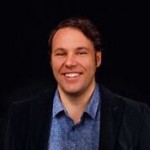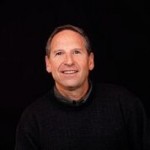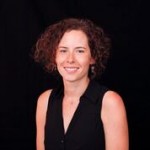
8th September 2017
10:00-15:00
Fox Lecture Theatre (G59), UWA, 35 Stirling Highway, Perth WA 6009



10:00-15:00
Fox Lecture Theatre (G59), UWA, 35 Stirling Highway, Perth WA 6009
Psychology is a fascinating discipline that seeks to understand why people think and behave in the way that they do. In this seminar, staff and researchers from the School of Psychological Science will be giving a series of talks on some of the curious phenomena that are relevant to our everyday lives. These will include a discussion of how we recognise faces and form first impressions, the importance of updating information in a post-truth world, the relevance of psychology in the workplace and other engaging topics.
Some hands-on demonstrations and information on the research that we do in the School of Psychological Science will also be available.
| Time | Presenter | Title | Overview |
| 10.20-10.30 | Dr Donna Bayliss | Welcome | |
| 10.30-11.00 | Dr Linda Jeffery | How do we read faces? | Imagine what life would be like if you couldn’t recognise faces or were unable to tell that someone was upset from their facial expression. I will talk about research investigating how we read this information from faces, how people vary in their ability with faces and why we sometimes get it wrong. |
| 11.00-11.30 | Dr Clare Sutherland | First impressions from faces | We easily form impressions of strangers we meet, simply from seeing their faces. I will talk about how we make these facial impressions, the surprising consequences they have in everyday life, and how accurate they are. |
| 11.30-12.00 | Assoc/Prof Ullrich Ecker | Fake news!? How do we deal with misinformation? | We often encounter information that may seem plausible at first glance but then turns out to be false. I will talk about how even clearly debunked misinformation can continue to influence our reasoning and decision making. |
| 12.00-12.30 | Break | ||
| 12.30-1.00 | Dr Ari Antonovsky | Risk, resilience and reliability: Managing human factors to prevent disasters | The ways that people manage technology and avoid disaster is an important concern of the field of Human Factors. In this talk, I will explore how people create reliability in the modern workplace and foster resilience to ‘keep it all safe’. |
| 1.00-1.30 | Assoc/Prof Shayne Loft | Rise of the Machines: Optimizing the Balance between Automation and Human Manual Control in Aviation and Military Settings | More and more tasks can now be accomplished by increasingly autonomous machines. To what extent in the near future will we even need humans? In this talk, I will broadly outline research from the Human Factors and Applied Cognition (HUFAC) laboratory that draws upon the psychological science literature to discover how best to design autonomous systems that maximise system performance but also ensure that humans can maintain the task awareness required to take over if required. |
| 1.30-2.00 | Dr Lies Notebaert | How in Psychology, Science and Practice go hand-in-hand | Many psychologists are ‘Scientist Practitioners’, and therefore in Psychology, progress in science and progress in practice contribute directly to one another. I’ll illustrate this by showing how psychological science has enhanced our understanding anxiety disorders, and how this knowledge in turn is now enhancing our capacity as practitioners to treat these disorders. |
| 2.00-2.30 | Dr Mike Weinborn | The Healthy Aging Research Program (HARP): What have we learned after (nearly) ten years? | HARP began in 2008 as a single student’s thesis project investigating age-related changes in our ability to remember to carry out our intentions in the future (e.g., to return a phone call in 30 minutes). Over the intervening years it has expanded its focus to multiple cognitive skills that influence whether older adults remain independent and with high quality of life in their advancing years. Key results and ongoing studies will be discussed. |






